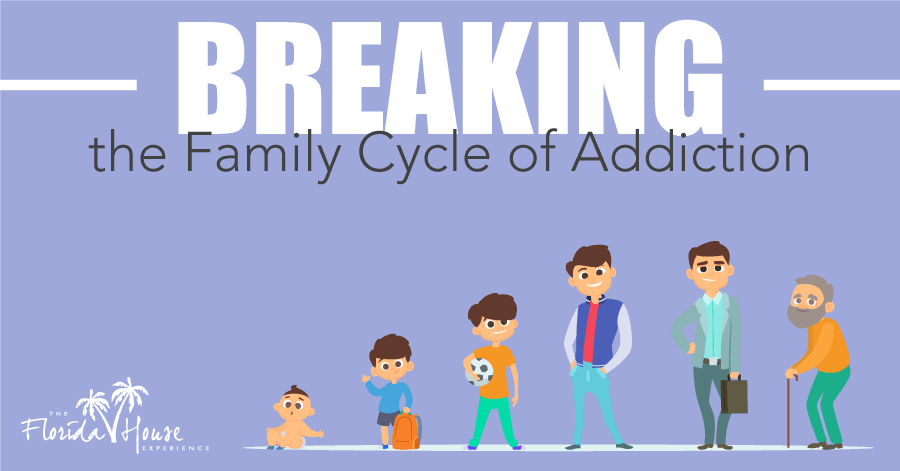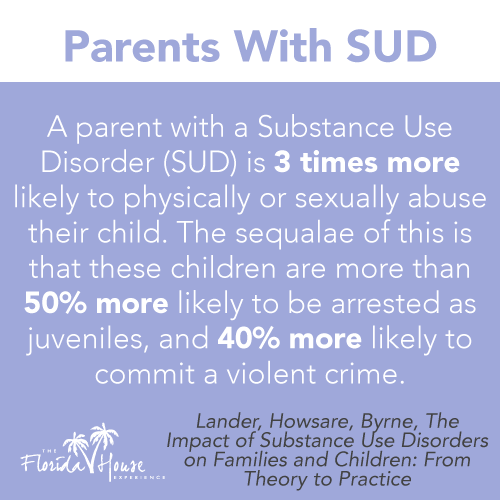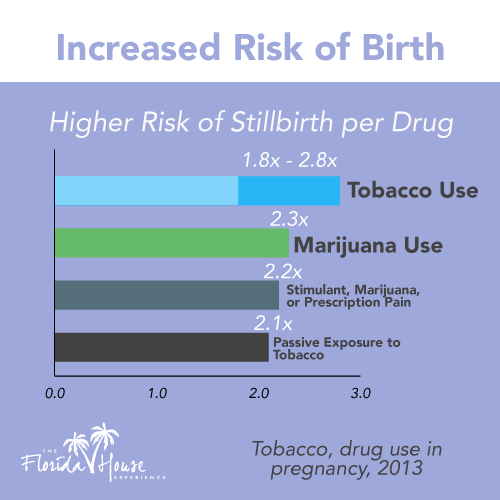
We already know that growing up with addicted family members is difficult. But, does it increase the odds of an individual developing a substance use disorder (SUD) in the future? According to a US News and World Report article published in November 2018, it does. The article cites a study suggesting that family drug and alcohol abuse is a key factor in explaining future addiction.
Research shows that children who grow up around family members struggling with addiction are more likely to experience economic hardship. Add to this legal issues and other side effects, and they’re more likely to develop substance abuse disorders themselves.
So, what is it that causes this so-called family cycle of addiction and how much is addiction explained by a person’s upbringing? How much adult behavior can be traced back to the environment in which a person was raised? These are questions we need to answer to provide patients with the addiction treatment they deserve.
In What Ways Does Family Addiction Affect Children?
 It’s not surprising that the actions of family members, parents especially, have such an impact. Behavior, responsibility and habit are often learned in family units first and then developed further with outside socialization.
It’s not surprising that the actions of family members, parents especially, have such an impact. Behavior, responsibility and habit are often learned in family units first and then developed further with outside socialization.
This is observable in many areas outside of just addiction. For example, children are often raised sharing their parents’ views on politics and society as a whole. This is evident when you track a person’s viewpoints over the course of their life. Usually, younger children and adolescents share more opinions with their parents. As they grow and spend more time with other people, these opinions may change. Parental behavior is often the first social interaction a child is able to observe.
Another issue is that parents who are addicted to drugs and alcohol are less likely to get help with their addiction. If it involves leaving their child or admitting their issue to an employee of the state (like a social worker, for example), they simply won’t address it.
It’s not uncommon for pregnant mothers to be addicted to drugs or alcohol. In most cases, pregnant women are even less likely to seek help because they don’t think rehab is safe for them or their baby. According to the National Institute on Drug Abuse (NIDA), rehab for expectant mothers is possible, but there are special needs that must be accounted for during treatment.
Why Do Children That Come From Addiction Have a Harder Time?
It should be noted that plenty of people with addiction in their families don’t fall into the same trap. Still, it’s important to be aware that children in these populations inherently have a harder road to adulthood than their peers.
Birth Defects from Exposure in the Womb

According to NIDA, the odds of a viable birth get lower the farther into pregnancy a person continues to abuse substances. When the birth does happen, the chances of the child being born with a defect caused by drug or alcohol use is high. This may manifest itself in the form of mental disorders, which can put a child at a disadvantage in life. This comes separately, even, from being raised in a household where drug addiction plays a part. Co-occurring substance abuse and mental disorders are extremely common in at-risk communities.
Lower Impulse Control
Scientists at UT-Austin offer up their own explanation for why children who have grown up around addiction often have a higher rate of diversion. According to research, it’s simply that being raised amidst addiction actually harms the development of the human brain.
Some parts of the brain that develop later in life — called the forebrain — can actually be stunted by aspects of growing up near addiction. This part of the brain controls things like memory, common sense and impulse control.
Being Homeless or a Part of the Foster Care System
The National Conference of State Legislatures publishes a regular study about the leading causes of youth homelessness. Key causes include an inability for the family to provide for them or because the youths simply run away from an unstable home. This instability can come from anywhere, but physical abuse and substance abuse are noted as two frequent factors. The group goes on to state that homeless youth are much more likely to develop mental illness and substance abuse disorders when they grow up.
Similar results occur when a parent or guardian has their child taken away from them due to incarceration. This is a common outcome when one or both parents are addicted to drugs or alcohol. These children end up in foster care, which tends to be a breeding ground for problems later in life, like economic hardship, disciplinary trouble and addiction.
Worsened Mental and Physical Development
One study explains the link between a person growing up around addiction and becoming an addict themselves. This is simply due to most parents who abuse drugs just not being as present and involved in their child’s life.
When children aren’t treated with care in their developmental years or aren’t given as much supervision as their peers, they tend to trail behind other students at school or start getting in trouble outside of school. This may lead to risky behaviors such as crime or gang affiliation, both activities with a high correlation to substance abuse.
The Take-Away
No matter the explanatory variable in any single case, it’s clear that addiction is not a good influence on family members. This highlights why addicts should be treated before their behavior has a chance to impact the lives of young and impressionable people.
If you or a loved one are struggling with addiction, contact FHE Health today and learn how we can help you onto the road to lifelong recovery.






